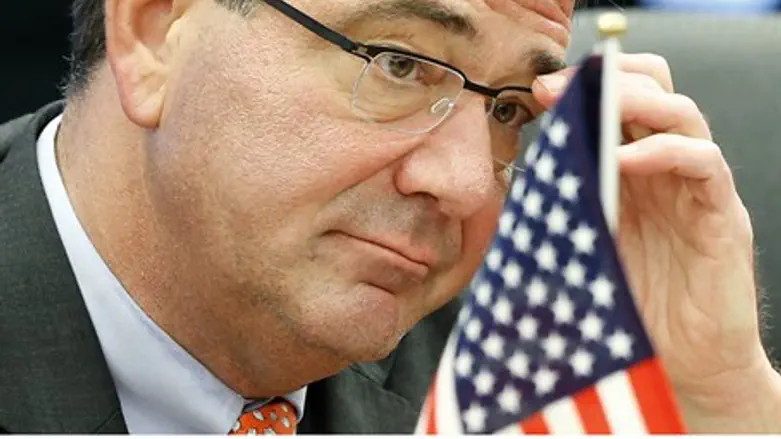
Russian hackers accessed an unclassified Pentagon network earlier this year, Defense Secretary Ashton Carter revealed Thursday, in the latest high-profile penetration of government networks that has been blamed on Russian hackers.
Speaking at Stanford University in Palo Alto, California, Carter was quoted by CNN as having said the breach, which was only recently declassified and was never publically reported, was quickly detected by Defense Department sensors.
It was unclear when the penetration occurred or if the hackers were working on behalf of the Russian government. Attempts by CNN to glean additional details were not immediately successful.
"(The hackers) discovered an old vulnerability in one of our legacy networks that hadn't been patched," Carter said, according to the report. "While it's worrisome they achieved some unauthorized access to our unclassified network, we quickly identified the compromise, and had a crack team of incident responders hunting the intruders within 24 hours."
"After learning valuable information about their tactics, we analyzed their network activity, associated it with Russia, and then quickly kicked them off the network in a way that minimized their chances of returning," he continued.
The disclosure comes just a few months after Director of National Intelligence James Clapper told the Senate Armed Services Committee that "the Russian cyberthreat is more severe than we had previously assessed."
The disclosure marks the latest breach of U.S. government networks attributed to Russian hackers, noted CNN.
Earlier this month, officials said Russian hackers were behind a series of damaging intrusions that penetrated sensitive parts of the White House computer system.
Although they were only able to access unclassified systems, the hackers had access to sensitive information like the President's daily schedule, officials briefed on the investigation said.
Those hackers were able to get into the White House system based on what they had learned through earlier hacks into State Department networks.
Carter's remarks Thursday were made during an address outlining a new Defense Department strategy on cyberdefense that relies on greater partnership with private vendors. The Defense chief said the Pentagon faces increasingly sophisticated and malicious online threats from both state and non-state realms.
"Our reliance on technology has led to real vulnerabilities that our adversaries are eager to exploit," Carter said, according to CNN.
In the wake of North Korea's alleged attack on Sony last year, as well as the increased threat from Russia, Carter noted that bulking up U.S. cyberdefenses will be a top priority going forward.
"I worry about what we don't know," Carter said. "Because this was only one attack."
The background for the hacking attack on Sony was its release of the controversial movie "The Interview", which deals with a plot to assassinate North Korean leader Kim Jong-Un.
Sony originally canceled the release of "The Interview" in up to 3,000 theaters, after the hackers threatened terrorist attacks against theaters that played the film. The company later backtracked on its cancellation of the movie, mostly over fierce backlash to the decision, including from President Barack Obama, who said the movie studio had made a mistake.
The FBI later said that Pyongyang was behind the cyber-attack on Sony Pictures, which exposed Hollywood secrets, destroyed data and forced Sony to take its entire computer network offline.